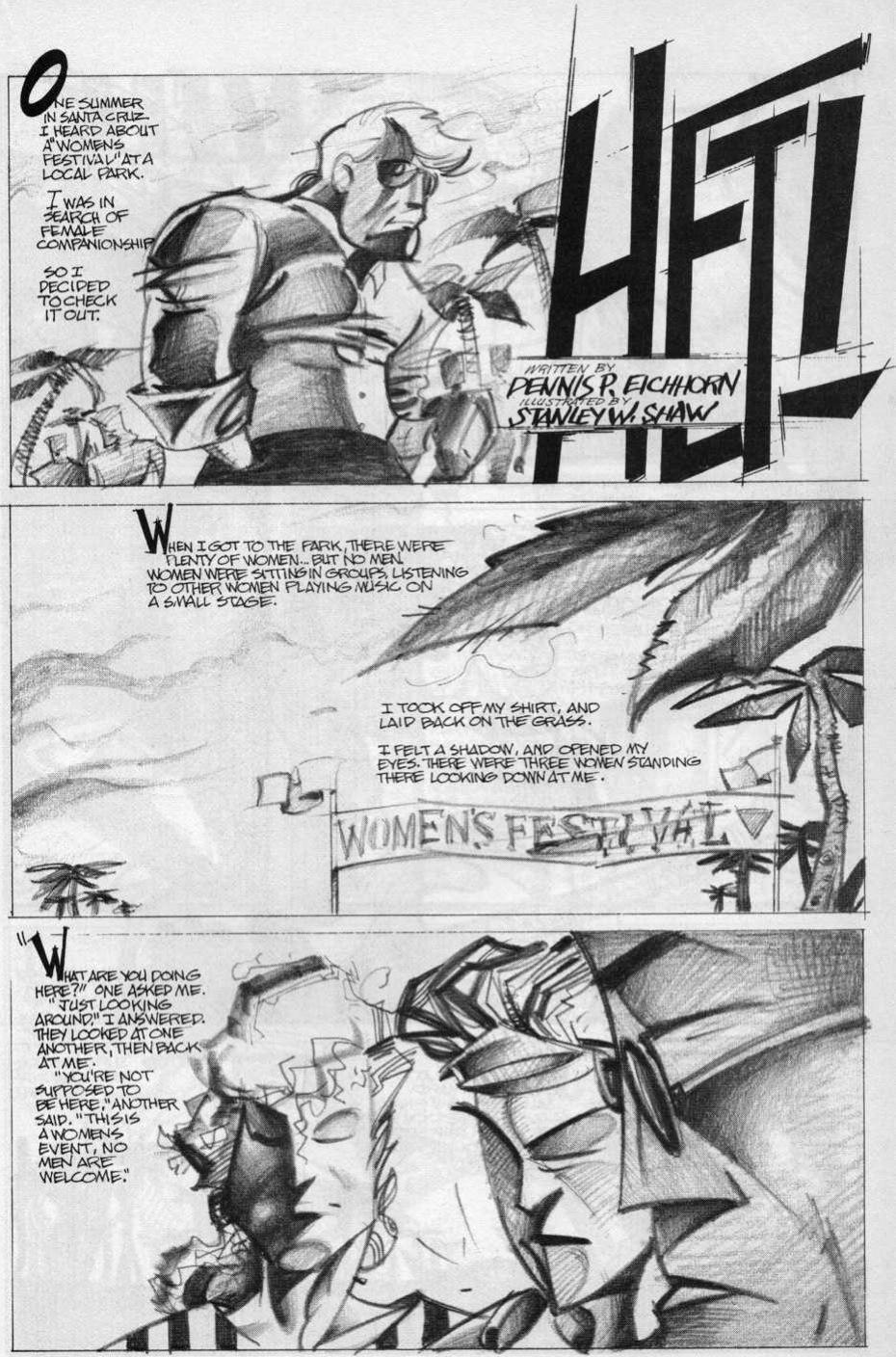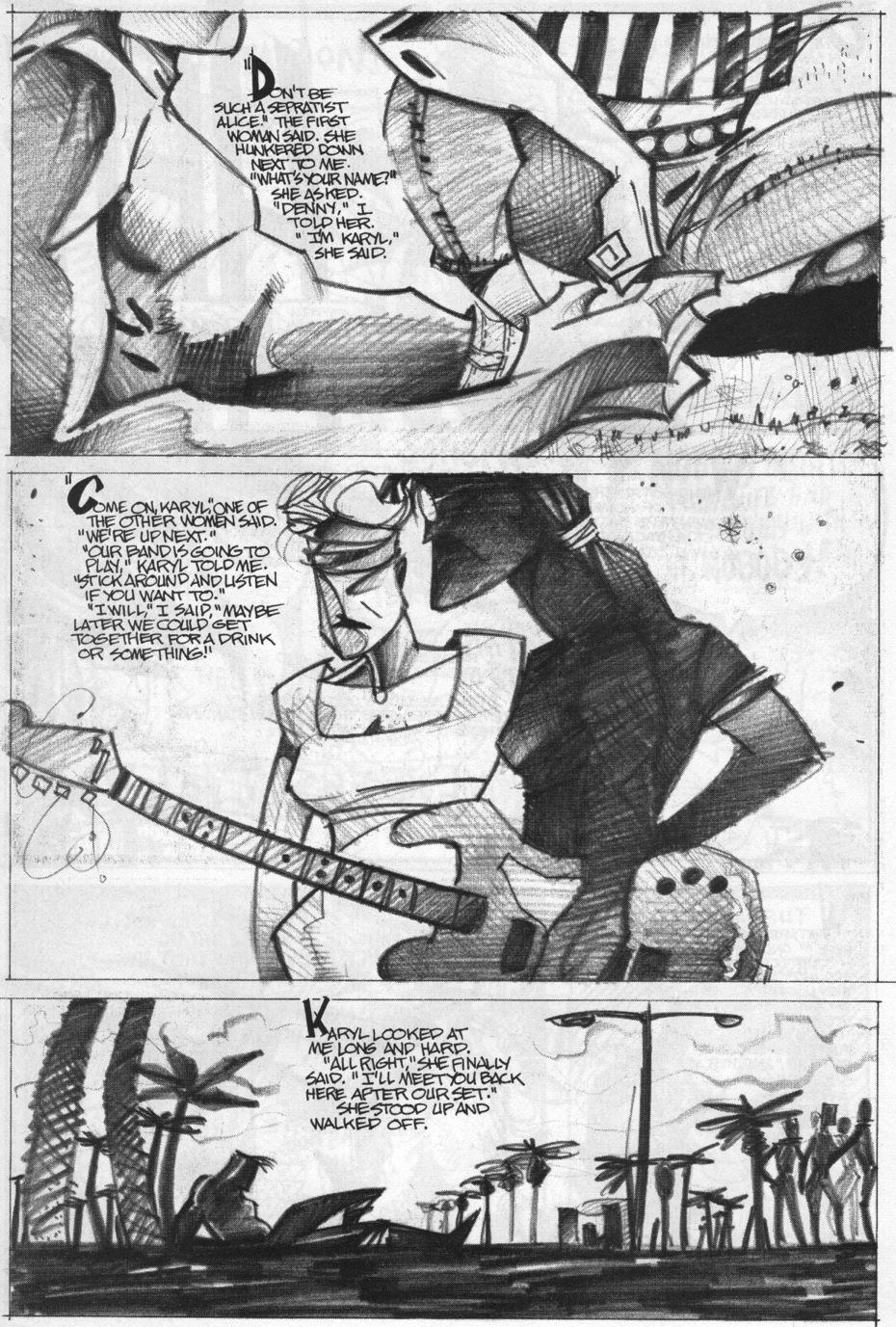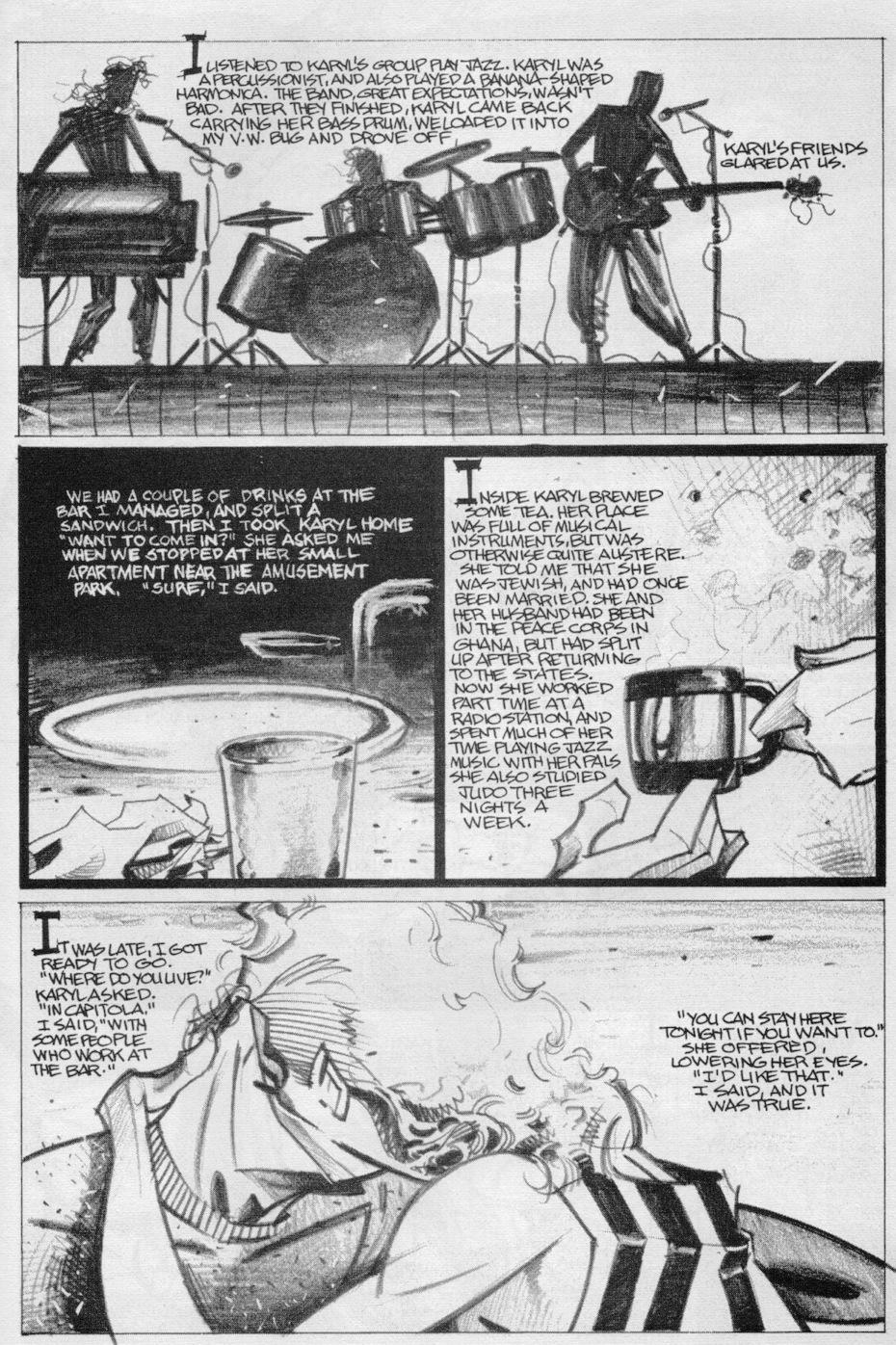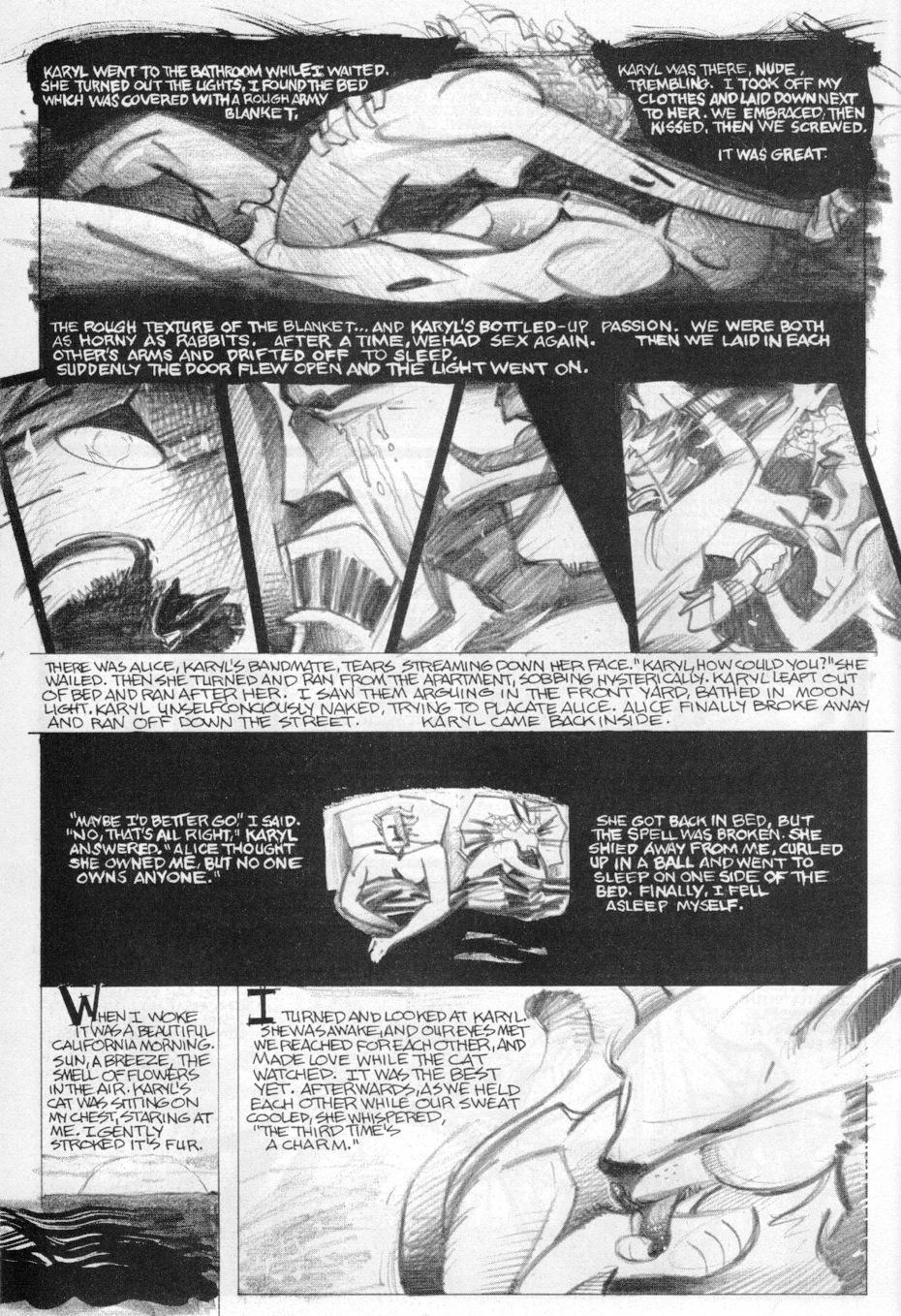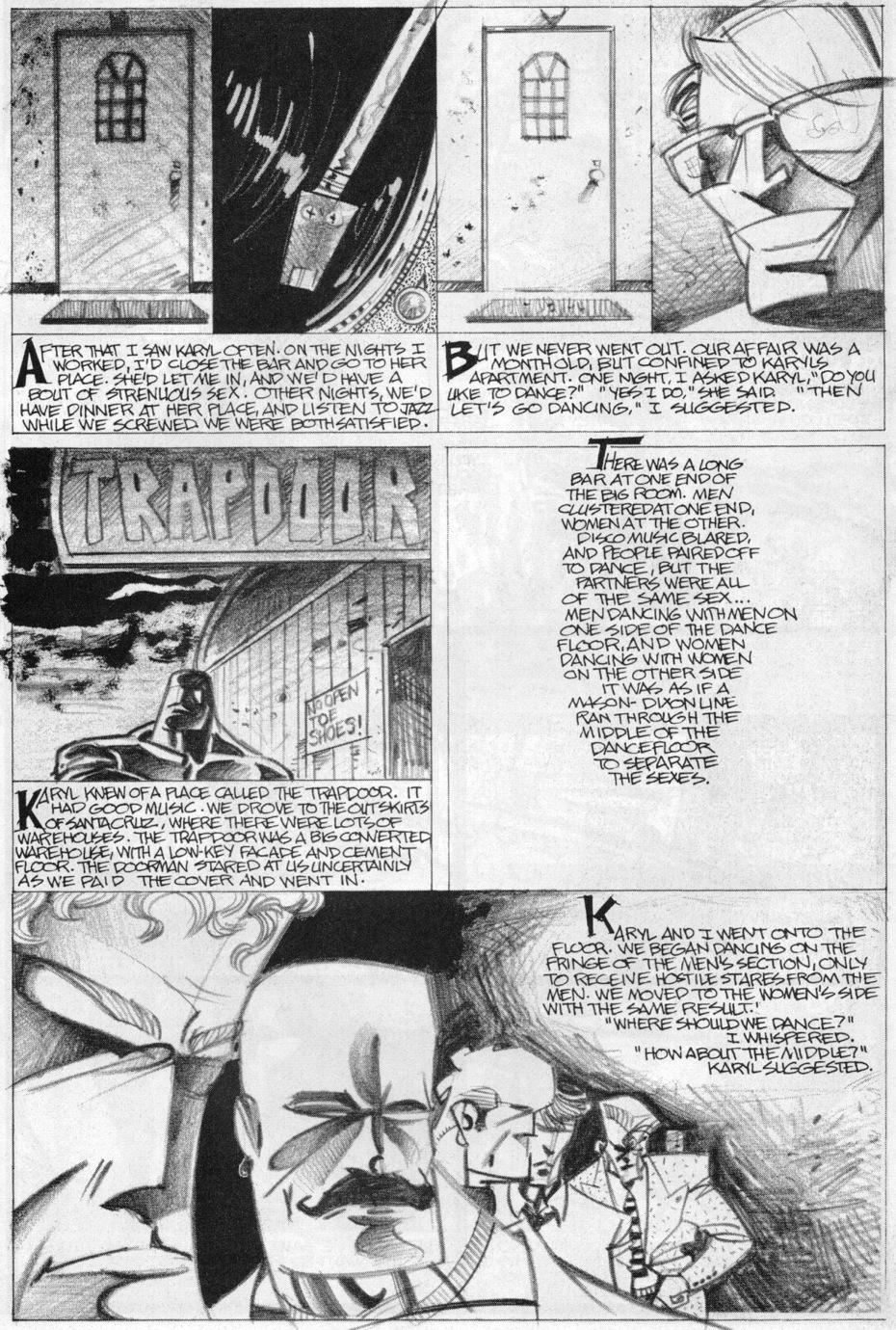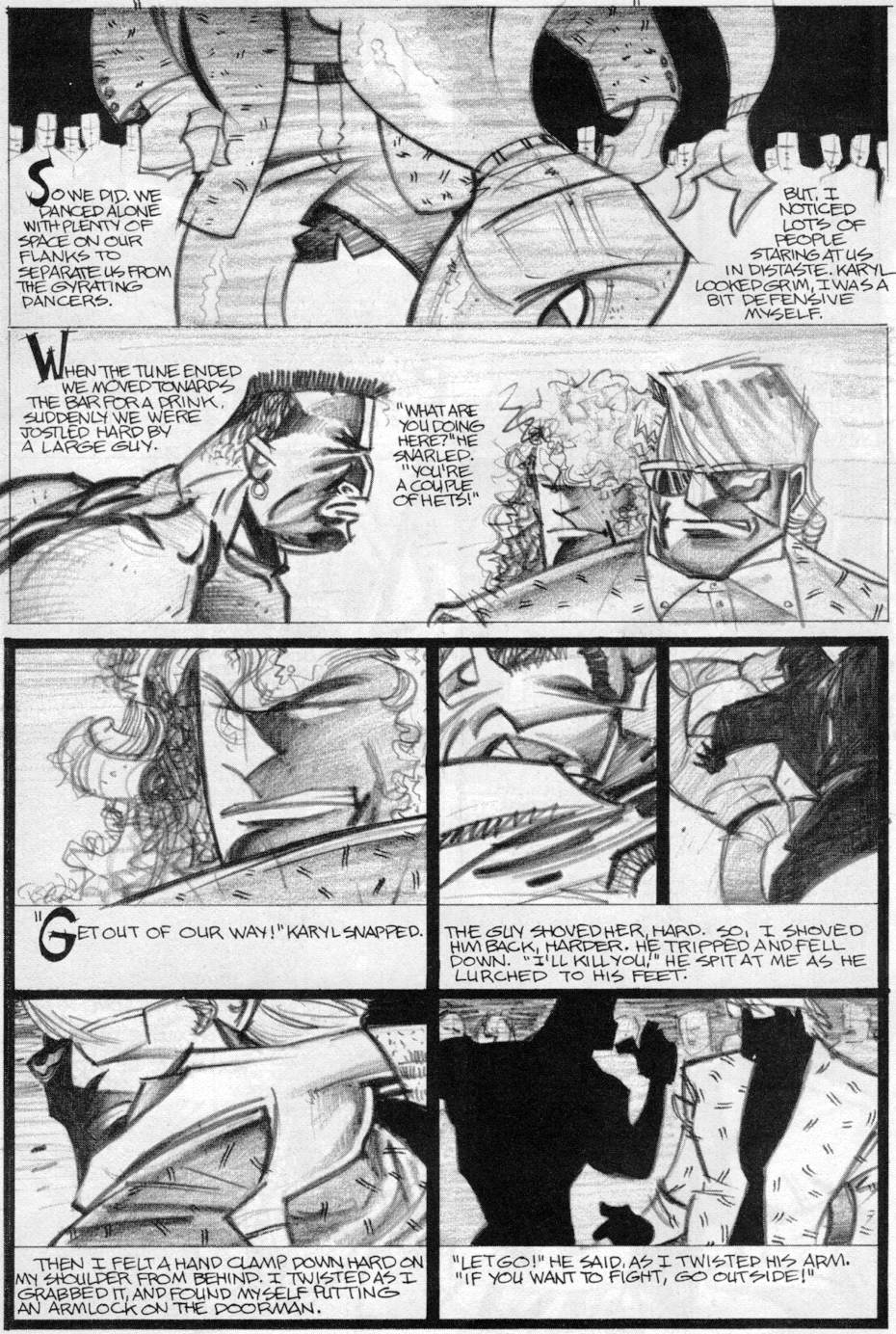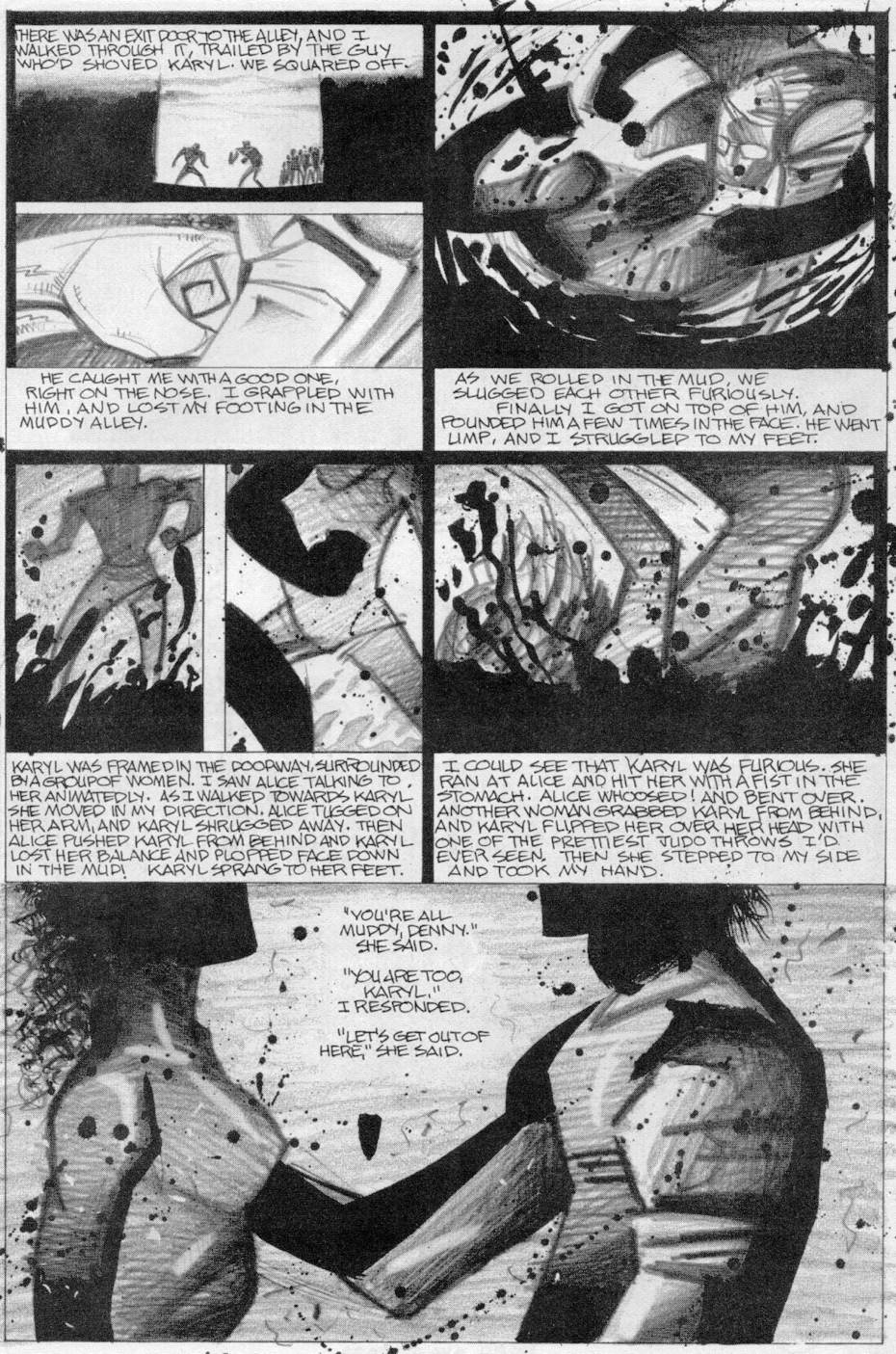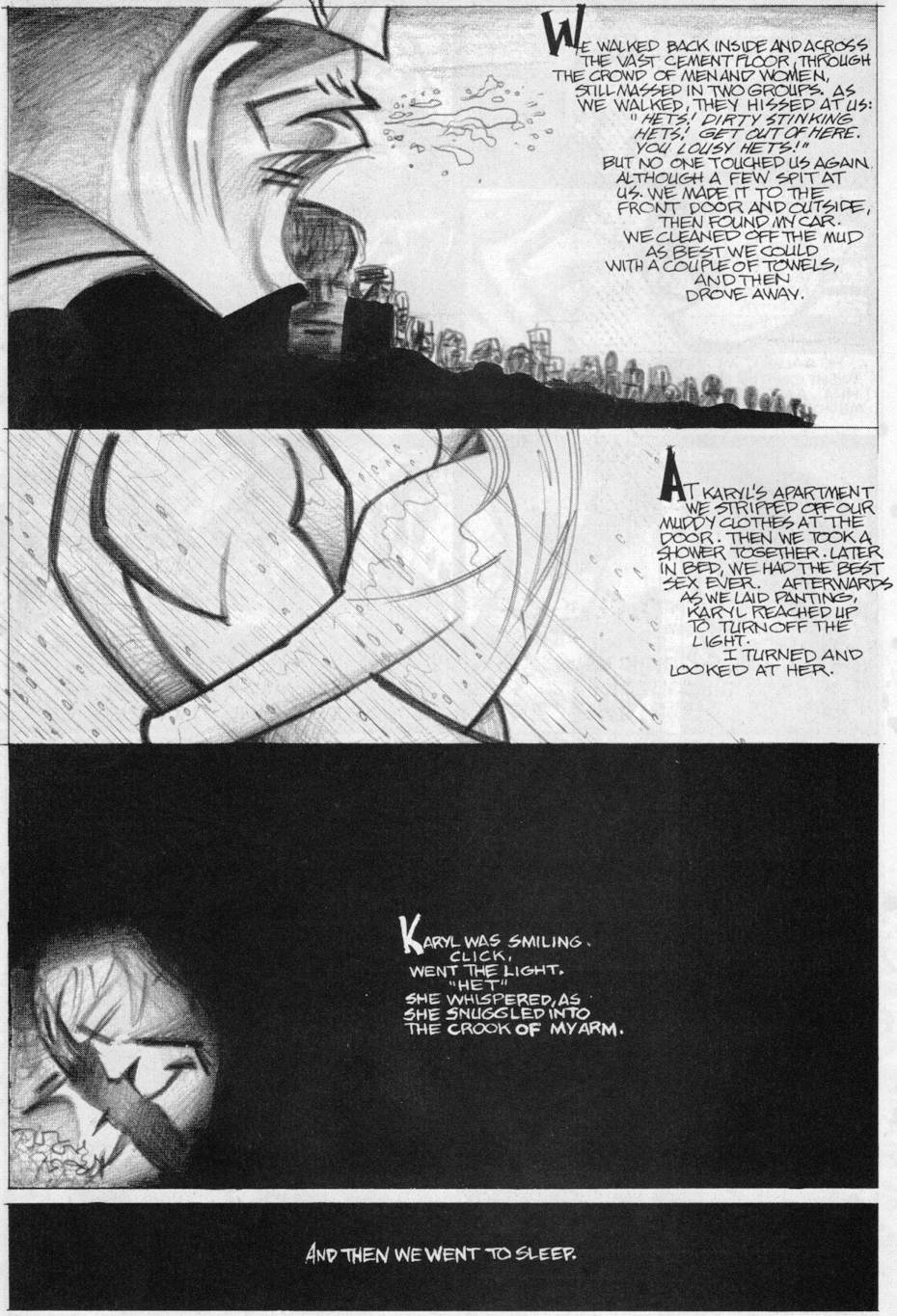http://linchpin.ca/?q=content/what-wear ... ility-workWhat Wears us Down: Dual Consciousness and Disability at Work06/13/2013
By Two Toronto Members, One Hamilton MemberAnarchists have in recent years taken up the topic of disability in our political analysis and activism, which is a positive development. The historical resistance of disabled people to segregation, institutionalization, poverty, and oppression has yielded strong political theory from which we can learn, and social movements in which we should participate. To avoid confronting disableism ignores its profound implications for the entire working class.
Historically and presently, anarchist orientations toward disability are extremely varied. While a clear refutation of Social Darwinism and eugenics can be found in Kropotkin’s writings on Mutual Aid, some of his contemporaries and followers promoted these backwards and vicious ideas. Presently, anarchist orientations range from the extreme disableism embedded within anarchoprimitivist thought, to an almost exclusive emphasis on identity politics and intersectionality from the social movement activist milieu, to the vulgar class reductionism often encountered within the anarchist communist tradition. Our goal is an understanding of disability that avoids class reductionism, while remaining firmly based in class struggle politics.
There remains a great deal of ambivalence, discomfort, and contradiction in our actions surrounding disability. Able-bodied working class people often times actively participate in the oppression of disabled people, while at other times standing in solidarity with their struggles. In working toward building strong working class resistance, these divisions and contradictions within the working class must not be stepped around, but examined and addressed head-on. Stating ‘we are all disabled’, or ‘we may all be disabled some day’ are insufficient; what’s needed is an examination of disableism’s broad manifestations in the class.
This article draws from the example of the Sojourner Truth Organization (STO), a Leninist cadre primarily active in the midwestern US from the late 1960’s to mid 1980’s. STO’s early mass work centred on shop floor organizing. As a predominantly white organization, they saw a role for themselves to examine and challenge racism from within the white working class. STO identified the racism of white workers as a barrier to revolutionary organizing. Their theoretical and practical work on this pivoted on their analysis of dual consciousness, which seeks to explain how and why white workers act in contradictory ways when faced with white supremacy and class struggle. Our intention here is to examine how theories around privilege and dual consciousness put forward by the STO might apply to disability or, more particularly, to non-disabled workers. Our goal is not to try and wrench a theory from one context and force it onto another, but to contrast similarities and differences in an attempt to offer strong possibilities for an orientation towards disability. In particular, it is our hope that the conclusions may offer up some ideas for how we can fight against disableism in our mass work as revolutionaries.
The Shifting Terrain of Disability in CapitalismThe social model of disability makes a separation between impairment - the physical condition of an individual - and disability - the social condition. In liberal discourse, this is often understood in relatively limited scope - the impairment is, say, being paralyzed; the disabling condition is the lack of a ramp to enter a building. However, many disability activists and theorists understand this much more broadly. What is considered disability, who is considered disabled, and what that means in relation to broader society changes greatly depending on context. The major shifts in what is considered disability over time and location show that disability is not so much defined in relation or extension to impairment, but by external economic and social conditions. The employing class has shifted definitions and uses of disability to their benefit, to discipline and divide the working class and to hold back revolutionary movements or to minimize their gains.
The industrial revolution marked a significant shift in work and in disability. Work became more regimented, with longer hours and less flexibility on how a job might be done. For those who were not working, it was in the interests of the state and employing class to make divisions between those who could not work and those who could, but did not. The medicalization of disability played a role here in legitimizing the divide between deserving and undeserving poor. For those who were disabled, the result was charity and often institutionalization. Those considered undeserving, or capable of work, were often criminalized. This allowed the state to appear charitable by providing some basic relief, while also adding pressure to maintain class structure. The horribly inadequate supports for disabled people provided impetus for workers to continue working despite horrific and dangerous conditions, and even through workplace injuries or ailments. The remnants of these divisions persist today, and continue to serve the same function in dividing and disciplining the working class.
A clear example of the economic rather than physical roots of disability can be found in the Pullman railway company in the 1910’s. At the time, the company faced many pressures: dealing with customers’ racist anxieties about the health risks of Black railway porters; new demands around providing life insurance for workers; and controlling workplace organizing - including a wildcat strike of 4000 workers in 1894. In response, Pullman implemented a plan across the company for intensive medical testing of all employees and potential hires. Across different areas of the company, these tests rejected ten to twenty percent of applicants. Workers were tested and rejected for things such as high blood pressure, unknown heart or lung ailments, or poor vision. Pullman official D.A. Crawford stated: “I am very strongly of the opinion that we should take all steps to prevent physical crooks from getting on the employment list. I think there is just as good reason for not employing a man with a bad heart or bad arteries as there is for not taking on a new one-eyed man.” This example makes clear that disability is very much a class relationship, one that in this case excluded workers who would likely never have been considered disabled in any other aspect of their lives, for the economic benefit of the employer.
Disability also plays out in broader society and struggle outside the workplace, interacting with race, gender, sexuality, and social movements. Jonathan M Metzl’s
The Protest Psychosis examines how the definition of schizophrenia changed drastically in the 1950’s and 1960’s from a diagnosis associated primarily with white women and not with violence, to a much more violent definition of paranoid schizophrenia that became particularly associated with Black men. Writing in particular about a large Michigan institution for the criminally insane, Metzl looks at how the revised DSM-II diagnosis was applied to Black men, particularly those who participated in civil rights and Black power movements, both in psychiatric institutions and in broader public discourse. The men were described as violent, delusional (believing white people were conspiring against them), hostile to white authority figures, and diagnosed with paranoid schizophrenia on that basis. This was used both to control individuals, by institutionalizing them, and to delegitimize Black power movements. While disability often presents as static and scientific, closer investigation reveals the significance of social context and, often, a close relationship with oppression and social control.
We Get the Health Problems, They Get the ProfitsInjuries and accidents bring the class relation into sharp and infuriating contrast. When old, rusty scaffolding collapses and a worker dies, it’s clear that the company’s push to cut costs cost the worker his life. But it’s no better if that company has the newest scaffolding and the best safety equipment. Management doesn’t fall off roofs. We do. Even the good worker can’t escape. He’s worked hard, turned a screwdriver repetitively for thirty years, made a lot of money for the company and never had a major accident in his life. One morning he reaches for his coffee mug and his elbow just gives out - never to work right again.-
Prole.info, The Housing MonsterAt work, the shaky terrain of disablement may not often be at the forefront of our minds. Nonetheless, it plays out in diverse and often challenging ways in the lives of working class people. Disability functions for workers as a threat, or a type of discipline. Working people are aware of the ramifications of being labelled unfit, and are often reticent to complain about workplace conditions and the effects those conditions have on their bodies. In this way standards of production need not only avoid accommodation of the production process to different bodies (which often incur material costs), but can also raise standards of uniformity and production efficiency using the ‘disabled’ bodies as an abject lesson for those who don’t conform. Working people are taught not only that their value is dependant on their ability to produce commodities, but also tied into their willingness to accommodate, without complaint, the rising demands of efficiency.
The division of the fit and unfit or ‘other’ has been a tool of capitalism for centuries in the maintenance of a divided working class, with race, gender, sexuality, nationality etc. used as a means to justify slavery, endemic disenfranchisement, imperialist aggression, chronic poverty, and social control. As with other oppressions, while disability is beneficial to capitalism, its maintenance is often reinforced by the working class itself. Injuries at work often go unreported, and working through pain or intense anxiety is a common feature of our working lives.
This works to the employers’ benefit and also limits the likelihood of the employment of workers who either refuse or are unable to endure environments that cause psychological and/or physical injury. What might be classified as ‘standards of excellence’ or ‘achievement’ may simply be the ability to endure an intense escalation of rote, physically and psychologically draining tasks as means of preserving one’s job against competitors.
In many industries, workers have fought for better health and safety standards, but often choose not to use them, as they find it easier or more comfortable not to; these processes can slow work down, meaning that the boss gets angry. There may also be an element of competition or machismo between workers influencing the decision. The likelihood that such dramatic levels of injury, sometimes to highly trained employees, is helpful for capital is questionable. Yet a contradiction emerges for both the worker and the employer; workers often see safety standards as an imposition in meeting production goals, despite the fact that these very standards have been historically fought for by their own class. Simultaneously, employers and the state attempt to impose some of these standards to avoid losses of skilled labourers, while demanding a level of efficient production that is impossible to meet when all safety standards are applied. What emerge are the necessary conditions of our current working world: workers ignoring safety standards to their own detriment, and employers demanding the impossible. What we must fight for is both an increase in safety standards and a simultaneous reduction in production goals, which would make the application of these new standards realistic. A block exists only when we see ourselves as individual workers fighting each other in the labour market, terrified of not meeting production goals as we may appear unfit. The enduring spectre of poverty and disability keeps us in line, even though it is increasingly likely to produce the very disablement we fear.
Able-Bodied Privilege and White PrivilegeWhile addressing disability, this article finds its real focus in examining ways in which able-bodied workers relate to disability. Although that term is at times controversial in disability politics, we chose to use it for a reason. The reason is that being able-bodied carries its own privileges. It is not simply a case of being non-disabled, but of benefiting from, and at times participating in the oppression of disabled people. So, we felt that it was important to use this term, in order to highlight able-bodied privilege as a construction in its own right. In writing about race, WEB DuBois used the term “the wages of whiteness” to describe the material and social benefits granted to working class white people, a sort of public wage, that granted them access and respect denied to even the most well-off Black people. And it is in this way we use the term privilege - to describe collective material benefits (higher wages, first hired/last fired, adequate housing, better access to healthcare and government institutions) that apply to all members of that social body. This section will first examine how STO, with great influence from DuBois, conceived of and challenged white privilege, before outlining the similarities and differences between white privilege and able-bodied privilege, and what we might conceive of as a “wages of ability”.
Coming out of the civil rights era, STO identified racism and white supremacy as an important division holding back the working class from revolutionary struggle. Like DuBois, STO did not view racism purely as prejudice, but identified that white working class people got real benefits from going along with racism, such as better job security, access to better schools, etc. However, these gains were only short-term. The challenge for STO - as an organization of primarily white workers - was to convince their fellow white workers to organize in solidarity with revolutionary workers of colour, willing to give up short-term benefits for the long-term collective benefit of a successful revolution. The point we draw from this is that it’s not just capitalists who indoctrinate the white section of the working class; the white working class participates in the reproduction of white supremacy through the maintenance of their privileges.
There are some clear similarities between white privilege and able-bodied privilege. Many of the material benefits (wages, housing,etc) accrued through able-bodied privilege are similar to white-skin privilege. In terms of housing and transportation, the worker with able-bodied privilege is afforded not just better quality but a larger variety of options. For example, not all public transportation stops are accessible to people with different impairments. Those with able-bodied privilege have greater mobility and are not limited to specific routes, stops or times of day. Able-bodied privilege gives individuals a false sense of dignity and independence. Although we are all interdependent, and rely constantly on the labour of other workers - in this case bus drivers - the material benefits of being able to get where we want reliably and affordably, and the social benefit of being treated as an independent person are examples of able-bodied privilege.
An important difference between white privilege and able-bodied privilege is trajectory. Social histories of whiteness have examined how groups previously considered nonwhite have been able to become white and gain white privilege - most often through participating in racism and establishing a useful social role for themselves. In disability, the trajectory is most often in opposition - through age, injury or illness, we lose able-bodied privilege much more regularly than we gain it. In STO’s examples, a white worker may be penalized or criticized for acting in solidarity with workers of colour, but he will not stop being white. In examples around workplace safety, the potential to lose able-bodied privilege is intensely clear.
Another important difference is the relative flexibility of disability. A person’s race may change if they travel to a country across the world or access a time machine, but it will not change on their way home from work, or from one industry to another. With disability, this is not the case. A person may be read as able-bodied in one workplace, say, academia, but as disabled when they attempt a construction job beyond the limitations of their particular impairments. The exact reverse also holds: work tends to be particularly disciplining, wearing us down in the specific body parts and abilities most crucial for our jobs.
As such, many of us find ourselves at the edge, and push ourselves to maintain privilege. This social process reinforces the various standards under which ablebodied privilege is produced. What’s peculiar is that these various standards often ensure that we lose our privilege in the long term; someone doing data entry might deny intermittent pain or express its existence while ‘toughing it out’ until their hands become useless due to a serious repetitive stress injury; a construction worker inhaling toxic dust might deny or disavow an ongoing breathing problem until the development of a serious lung disease. We actively engage in the production of our privilege while creating restrictive conditions that only some might be able to endure and which can ultimately relegate us to the same category we sought to avoid. And it can’t be said enough: the long-term benefit goes only to our bosses.
Dual Consciousness and Able-Bodied PrivilegeIn his work
The Souls of Black Folks DuBois uses the term “double consciousness” to describe the two worlds Black people experienced - Black and American. He described it as a somber, almost immaterial veil that divided the South. STO’s work on dual consciousness also pertains to race, but takes a somewhat different character. In part, STO developed ideas of dual consciousness as a rejection of Lenin’s stage theory of consciousness, which described workers going steadily from bourgeois to working class consciousness. Similar to DuBois, STO saw this, not as a progression, but a condition of both consciousnesses existing at once in the mind of workers. In STO’s understanding, race played a central role in the minds of white workers. At times, they would ally with Black workers, demonstrating proletarian consciousness, while at other times they would engage in racist class collaborationism, demonstrating bourgeois consciousness. In his 1972 work, STO member Noel Ignatiev uses an example of white workers displaying proletarian consciousness to stand up to managers on the factory floor in defence of Black workers, then the same evening participating in a demonstration to maintain racial segregation in their neighbourhood schools. Again, it is important to emphasize that STO did not see dual consciousness as illogical or divorced from short-term material benefits, but as something that needed to be contested to secure long-term revolutionary gains.
Dual consciousness plays out in the able-bodied working class, in how we act toward our coworkers, other people, and even how we view ourselves. A group of graduate students all participate in a competitive and nasty work environment, ignoring symptoms of anxiety, depression and physical ill-health in each other and themselves - while also being sure to make department events physically accessible; a construction worker helps out the family of an injured long-time coworker, but doesn’t intervene on younger coworkers or the boss when the same unsafe working conditions crop up; a supermarket worker sticks up for her disabled coworker, until the stress of long hours, an aching back and a nasty boss make it too difficult; a healthcare worker is dedicated to the people she supports, but votes for a party that would decrease disability income because it lowers her taxes. Even when we have the knowledge of what is right, the pressure not to act on it is immense. For this reason, dual consciousness points toward collective organizing: it is not about changing our individual minds, but about organizing together to change social conditions until these contradictions no longer exist.
Forming in the late 1960s, STO believed that Black working class people in the United States were the most revolutionary sector of the class. As an organization composed largely of white workers and activists, they viewed their role in relation to this as one of addressing white supremacy within the white working class. If white workers could overcome this dual consciousness and commit to class consciousness and solidarity across racial lines, STO believed this would help clear the way for revolutionary action. So, dual consciousness was clearly developed not just as a theory to understand race relations within the class, but as a way of directing the actions of revolutionary white workers. In practice, STO prioritized work on the shop floor that challenged white supremacy and promoted class solidarity.
As anarchists, we reject this understanding of a section of the class being the revolutionary vanguard, regardless of who is in this position. Also, we are not proposing that disabled people would be the vanguard in this orthodox equation, even if we did agree with this model of revolution. Dual consciousness is still relevant to our work around able-bodied privilege and disableism, not in spite of this view, but because of it. Anarchists believe in a united class struggle that fights all forms of oppression and divisions within the class. Our hope in connecting disability with dual consciousness is to propose a model for doing so that offers concrete and useful possibilities for action, and a material, rather than ideological basis for thinking about oppression.
Identity and Mass Politics in Disability: Sharpening the Anarchist ApproachFor many years, there has been a strong and active disability movement organizing around issues such as accessibility, poverty, employment, and more. Some of these movements have had a left character - for example, the Union of the Physically Impaired Against Segregation, which helped create the social model of disability, came to these ideas through a socialist analysis. However, the socialist tradition has generally not incorporated disability politics into their analysis and mass work to any great degree. This is not simply an oversight or indicator of disableism, but is related to the ways those who follow a socialist tradition conceptualize class.
Anarchists have been somewhat more aware of disability issues, and have made more significant efforts to address disability, with mixed results. As mentioned above, the severe disableism found in anarchoprimitivism is something other anarchists must actively assert disagreement with and put forward arguments against. Arguably the most successful current of anarchism with regards to disability thus far has been that associated with anti-oppression or identity politics. Those who adhere to those politics have brought awareness and activism around disability, with the result that - at least in Toronto - an access van at a large demonstration, an ASL interpreter at a political event, or a serious discussion around balancing accessibility needs when planning a bookfair are, while certainly not standard, a relatively consistent part of activist practice. We don’t always do a good job with it, but due to the strong efforts of activists, disability and accessibility are on the radar in ways that they weren’t ten years ago.
Without minimizing the importance of this work, we would like to offer up a few critiques. One is that identity politics tends to rely very heavily on individual identity. Because disability is a somewhat flexible identity, this has at times contributed to arguments such as “we are all disabled” or “we all will be disabled someday” as reasons to be involved in these struggles. Our concern in this regard is that opening up a massive spectrum of disability may serve to obscure the realities faced by people most severely affected by disableism, possibly reinforcing the structures that we seek to undermine. Another political argument is the one we put forward in this article: that able bodied working class people also have a stake in this, not because we may be disabled or we may become disabled someday, but because disability is a fundamental part of class structure.
Another critique is that the direction that comes from identity politics is the focus on accessibility at activist events. While this is an important thing to do and the exclusion of disabled people from activist events is a real and serious issue, it is a limited project. While our own events and meetings may be a sensible starting point, a great deal of this type of activism tends to stop here, caught up in perfecting accessibility practice. In order to effect real change, we must not neglect our internal practices - but we also must not let them become a barrier to action in mass struggles.
Lastly, identity politics frames the fight against disability in terms of individual transformations, rather than collective change. Identity politics teaches us that with workshops and trainings we can become more self-aware of our privilege and become better allies. This is really a form of liberalism – the notion that we can change the world one individual at a time. It doesn’t take into account that able-bodied privilege and disableism are social processes and must be struggled against as a collective process on all of our actions and ideas. It is not enough to change the individual’s ideology; we need to participate in projects that seek to undermine the material basis (wage-labour, housing, etc.) that produce able-bodied privilege and disableism.
Class struggle anarchists, as a tradition, have done little with disability politics, either internally or in mass work. This is in part due to our conceptions of class and class struggle, which too often focus entirely on workers and the workplace, and don’t take proper account of the community and of reproductive labour. Even within workplace organizing, our focus tends to be similar to that of mainstream unions - wages and benefits, and often throwing our support behind strikes initiated by unions. Tackling issues like dual consciousness and disability requires a different approach, one that gets to the heart of how we conceive of ourselves as working people. We need to develop strategies on the job, using anarchist principles such as direct action and mutual aid, to address issues that could never be written into even the best collective agreement.
It is our hope that this piece expresses a class struggle approach to oppression that is not an either-or choice between class and identity. Class and social oppressions such as disableism are linked, and can - and must, in order to be effective - be holistically addressed. While we critique identity politics for being too inwardly focused, we must also not ignore prefigurative politics in our own organizations. Rather, we should challenge ourselves to apply principles such as mutual aid and collective responsibility to tackle disableism in our organizations and in our mass work.
Conclusions for ActionAble-bodied privilege is deeply embedded in our culture. It is not something, as identity politics might present, that individuals can carve out of themselves with careful self-attention. It is something we must fight collectively, consistently, and with commitment as a critical part of our class struggle. Fighting able-bodied privilege is not high level theoretical politics. It is something all working class people can do, and it is a part of our daily struggles.
A plumber we know was called to a group home for people with developmental disabilities. Left alone in their basement, he noticed a room with padding, restraints and heavy locks. He called in to his employer, stating that he would not be completing this job, and left. Our labour has value and we can commit to using it in ways that do not sell out others in our class. This example is both exemplary and part of the problem: it takes the form of individual action, which is not extended to their coworkers, the staff or the residents of the group home, but it is admirable nonetheless. The issue of extending a struggle against able-bodied privilege into collective working class projects is far more difficult to pin down.
What if construction workers refused to build all forms of segregated institutions, or brought up demands around physical accessibility of the buildings they worked on? If their direct experience and skill with building could meet with disabled peoples’ experience and skill with navigating space in different ways, the spaces constructed would likely be more functional and sturdier (and probably less ugly) than what architects and funders come up with. What if workers in grocery stores and coffee shops implemented a ‘march on the boss’ tactic to demand that the unpaid work placements carried out by people with developmental disabilities be paid? By doing this, they would reject notions of charity and state that everyone’s labour has value. What if direct support workers working with impaired individuals took on a union strategy that placed the demands of the impaired at the forefront? Sufficient staffing ratios would be presented, and won, not only as better working conditions, but as necessary practices for respect and social inclusion.
It might also mean that we not only address the outcome of our work and the ways in which it is used, but also the content. What if we refused to be relegated to a narrow set repetitive tasks that eventually caused chronic debilitating pain, and instead organized our workplaces to demand both ergonomic supports and greater job sharing? By moving what is often considered a personal health issue to the realm of collective struggle, we take to task core issues around how work is structured, and expand notions of workplace issues to organize around. What if we collectively decided to adhere to every possible safety code at the construction site, refusing to compromise regardless of how long it took and how far from quotas we fell because our own safety and well being are more important than the bosses profitability? We would declare the inevitable wearing down of our working bodies, which eventually robs many of our livelihoods and affects our lives outside of work, as unacceptable. We would also challenge the narrow conceptions of what labour struggle is and openly take on the core issue - their profits vs. our lives.
Within and beyond the workplace, addressing disableism also opens up important anarchist discussions around mutual aid and interdependence. Individualism and independence are capitalist notions that have kept us divided and unable to fight against disableism effectively. As stated before, there is a false sense of dignity around independence. We all rely on each other for certain aspects of our life. It is the case that some activities are considered to be ‘’normal’’ to be dependent (such as car repairs, haircuts or childcare) and some are not (such as personal care or working). We are all interdependent, disabled or not. We all need each other. This is why the notions of interdependence and mutual aid must be at the centre of our struggle. Instead of fighting against disableism at a private or individuallevel we need to act collectively, as disableism is part of the class structure that affects all of us. By promoting values of individualism and independence, we stay divided. Why don’t we strive for autonomy - which is being able to make the choices that affect our lives ourselves - as opposed to independence?
It’s clear that the currently narrow focus of disability politics, which is ubiquitous amongst much of the left, is falling short of seriously addressing the pervasive and systemic exclusion of, and brutality toward members within our class. Anarchists should be aware of the framework of mutual aid that we as a class can only truly progress if we support each other in the pursuit of our collective good. We’ve attempted in this article to draw out some of the most useful theories that might uncover our own short-fallings in applying mutual aid within the terrain of disability politics. The content of our lives and countless others must regain the dignity and well-being that has been lost through our own failed perceptions and the ongoing machinations of the exploitative machinery of capitalism. If we truly care about the possibility of a more just and equitable society, it is incumbent on us to better understand how disability is produced - and how we can fight it.



